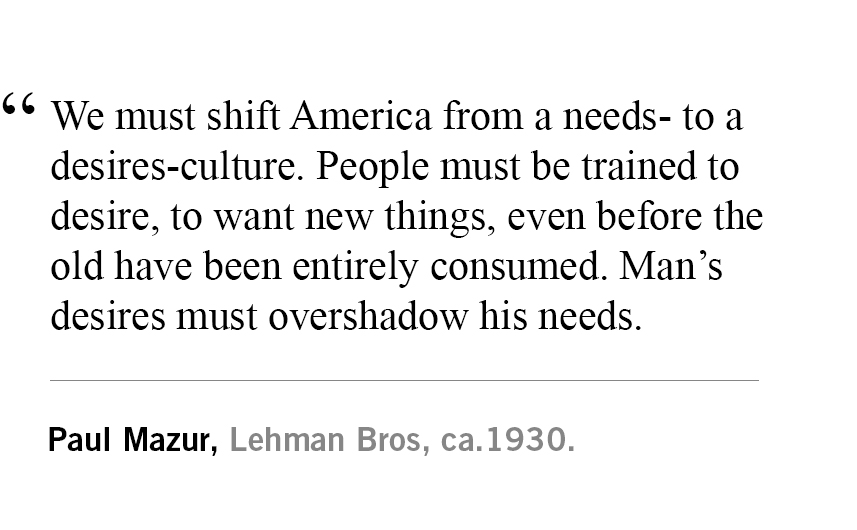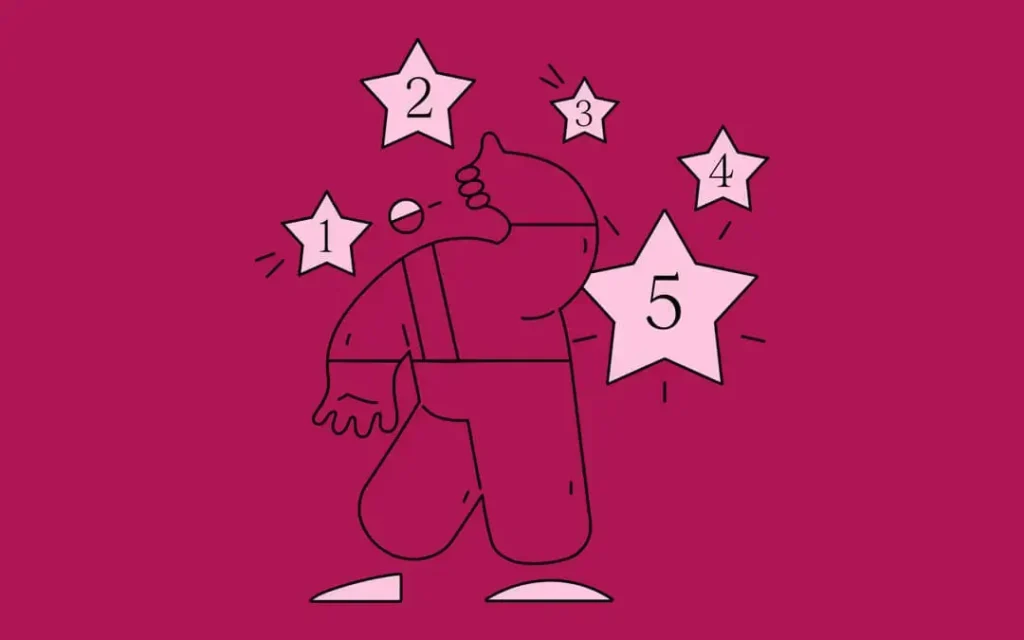How the Age of Opulence Set Us Off on Mindless Consumerism
How the Age of Opulence Set Us Off on Mindless Consumerism

We came across this 1930 quote from the post “This isn’t happiness”, which was featured on the Explore blog.
We believe it shows the point at which things started to get ugly.
This was a call for a time of mindless consumerism.
A time when people “had to be trained”.
And boy, were we ever trained.
Whatever it was, as long as it was “more, faster, cheaper, now”, we bought it.
We filled our houses, then our garages, and then rented storage pods, with stuff we didn’t really want or need.
Everything got cheaper and cheaper at a time when we made more and more money.
Everything got bigger and bigger, from McMansions to sodas to SUVs to our rear ends.
It was an orgy of buying stuff.
Meaningless stuff.
Then came the dawn of the age of meaning.
This era has been prompted by threats on one hand: foreclosures, job losses, bankruptcies, tight money, political gridlock, social problems.
It has accelerated thanks to opportunities on the other: technology that empowered consumers to easily and instantly know more, to look behind the scenes and to share points of view; as well as technology that made business far more sophisticated in a results-driven, bottom-line management sense, but far less human in the process.
Its presence is confirmed by a new consciousness: mindful consumerism, thoughtful purchasing, considered employment, ethical investing.
Yes, we’ve moved beyond basic needs.
But now, our newly forged desires are overshadowing the mindless consumerism of the opulence age.
We are smarter, more caring, and more responsible in what we do.
In fact, we don’t just “do” – we seek to create meaning in our lives.
In every action, we consider the ramifications on ourselves, the people in our community, and on the planet.
Businesses that recognize these new desires will win in the age of meaning.
Those who don’t will fall away, never to be missed.
Curious? Read our paper, “The Age of Meaning“.






